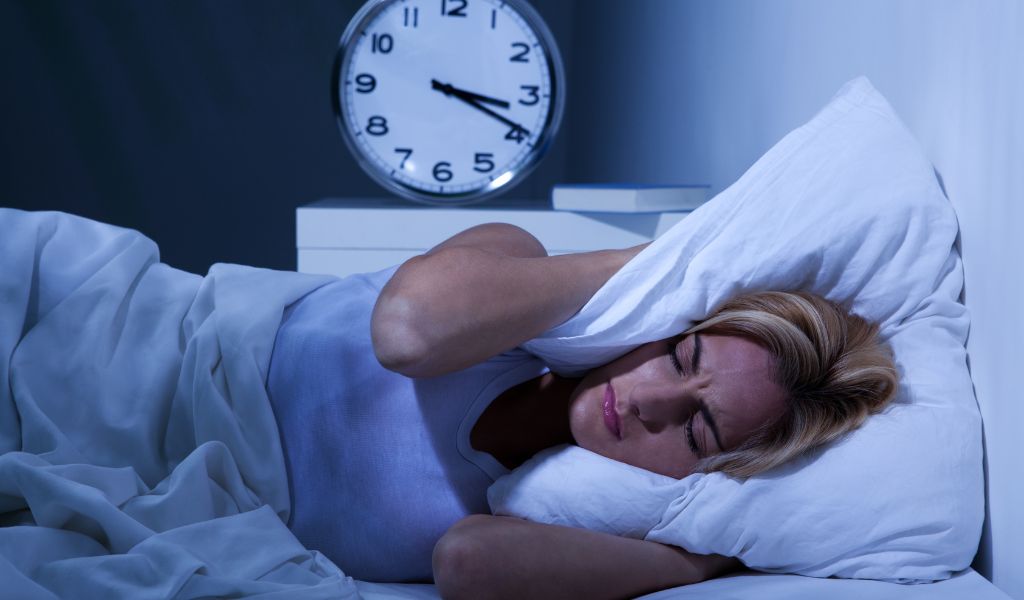Are you lying in bed, tossing and turning, muttering to yourself, “I want to sleep but my brain won’t let me”?
You’re not alone. Millions of people around the world struggle with sleep problems.
In this article, we’ll explore the reasons behind sleepless nights and provide actionable tips to help you get the rest you need.
I Want to Sleep but My Brain Won’t Let Me: The Science Behind Sleeplessness
There are numerous factors that can contribute to sleepless nights. Let’s dive into the science behind why your brain may be keeping you awake.
The Role of Stress and Anxiety
Stress and anxiety can wreak havoc on your sleep, making it difficult to fall asleep or stay asleep throughout the night.
Your racing thoughts and heightened stress levels can keep your brain active, preventing you from drifting off.

Sleep Disorders
Sleep disorders, such as insomnia or sleep apnea, can be the culprit behind your sleep troubles.
If you suspect you may have a sleep disorder, it’s important to consult with a medical professional for a proper diagnosis and treatment plan.
Tips to Calm Your Mind and Get Some Zzz’s
Now that we’ve covered some reasons why you may be struggling with sleep, let’s look at some techniques that can help you calm your mind and finally get some rest.
Establish a Consistent Sleep Schedule
Going to bed and waking up at the same time each day, even on weekends, can help regulate your body’s internal clock, making it easier to fall asleep and stay asleep.
Create a Relaxing Sleep Environment
Ensure your bedroom is conducive to sleep by keeping it cool, dark, and quiet. Consider investing in blackout curtains, a white noise machine, or a fan to help create the perfect environment for rest.
Limit Exposure to Screens Before Bed
The blue light emitted from screens can interfere with your body’s production of melatonin, the hormone responsible for regulating sleep.
Try to avoid screens at least an hour before bedtime to give your brain a chance to wind down.
Practice Relaxation Techniques
Incorporate relaxation techniques into your bedtime routine, such as deep breathing exercises, progressive muscle relaxation, or meditation to help calm your mind and prepare your body for sleep.
Don’t Forget the Power of Exercise and Nutrition
Your daily habits can have a significant impact on your sleep quality. Let’s explore how exercise and nutrition can help improve your sleep.
The Benefits of Regular Exercise
Engaging in regular physical activity has been shown to improve sleep quality and reduce symptoms of insomnia.
Aim for at least 30 minutes of moderate exercise most days of the week.

Eat for Better Sleep
Your diet can also impact your sleep. Consuming a balanced diet that includes foods rich in magnesium, tryptophan, and melatonin can help promote restful sleep.
Avoid heavy, spicy, or high-fat meals close to bedtime, as they may cause discomfort and disrupt sleep.
What About Sleep Aids and Medications?
If you’re still struggling with sleep after implementing the tips above, you may be considering sleep aids or medications. Let’s discuss the pros and cons of these options.
Over-the-Counter Sleep Aids
Over-the-counter sleep aids can provide short-term relief for occasional sleeplessness, but they are not meant for long-term use.
Be sure to follow the recommended dosage and consult with a healthcare professional if you’re considering using them regularly.
Prescription Sleep Medications
Prescription sleep medications can be effective in treating sleep disorders or severe insomnia, but they should only be used under the supervision of a healthcare professional.
These medications can have side effects and may be habit-forming, so it’s crucial to use them as prescribed and discuss any concerns with your doctor.
Alternative Sleep Therapies
If you’re hesitant to use sleep aids or medications, there are alternative therapies that may help improve your sleep quality.
Cognitive Behavioral Therapy for Insomnia (CBT-I)
CBT-I is a proven, non-pharmacological treatment for insomnia.
It focuses on identifying and changing negative thought patterns and behaviors related to sleep, helping you develop healthy sleep habits.
Acupuncture and Acupressure
These traditional Chinese medicine techniques have been shown to help some people improve their sleep quality by promoting relaxation and balancing the body’s energy flow.
Frequently Asked Questions
Here are some commonly asked questions about sleep and how to improve it.
1. How much sleep do I need?
The optimal amount of sleep varies by age and individual needs, but most adults require 7-9 hours of sleep per night for optimal health.
2. Can I make up for lost sleep on the weekends?
While catching up on sleep over the weekend may help you feel more rested, it’s not a long-term solution. Establishing a consistent sleep schedule is more beneficial for overall sleep quality.
3. What is the best sleeping position?
The best sleeping position is the one that allows you to fall asleep comfortably and maintain good spinal alignment. Many experts recommend sleeping on your side with a pillow between your knees to reduce pressure on the spine.
4. Is it normal to wake up during the night?
It’s normal to experience brief awakenings throughout the night, but if you’re frequently waking up and having difficulty falling back asleep, it may be a sign of a sleep issue that should be addressed.
5. Can napping during the day affect my nighttime sleep?
Napping can be beneficial, especially if you’re sleep-deprived. However, if you’re struggling with insomnia or poor sleep quality, limit your naps to 20-30 minutes and avoid napping too close to bedtime.
6. Is it bad to exercise right before bed?
While exercise is beneficial for sleep, engaging in vigorous exercise too close to bedtime may make it more difficult to fall asleep due to increased arousal and body temperature. Aim to finish exercising at least 1-2 hours before bedtime.
Conclusion and final thoughts 💭
If you find yourself thinking, “I want to sleep but my brain won’t let me,” don’t despair.
By understanding the factors that impact sleep and implementing the tips and techniques discussed in this article, you can improve your sleep quality and finally get the rest you need.
Remember, good sleep is essential for overall health and well-being, so it’s worth making the effort to prioritize it in your daily routine.




